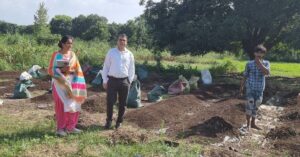For 25 Years, A Lush Organic Farm Run By Delhi Woman Has Helped 1500 Orphans
Meet Veena Lal, founder of Faridabad NGO Karm Marg, who has dedicated decades to provide education and a safe home to hundreds of orphaned, traumatised and disabled children
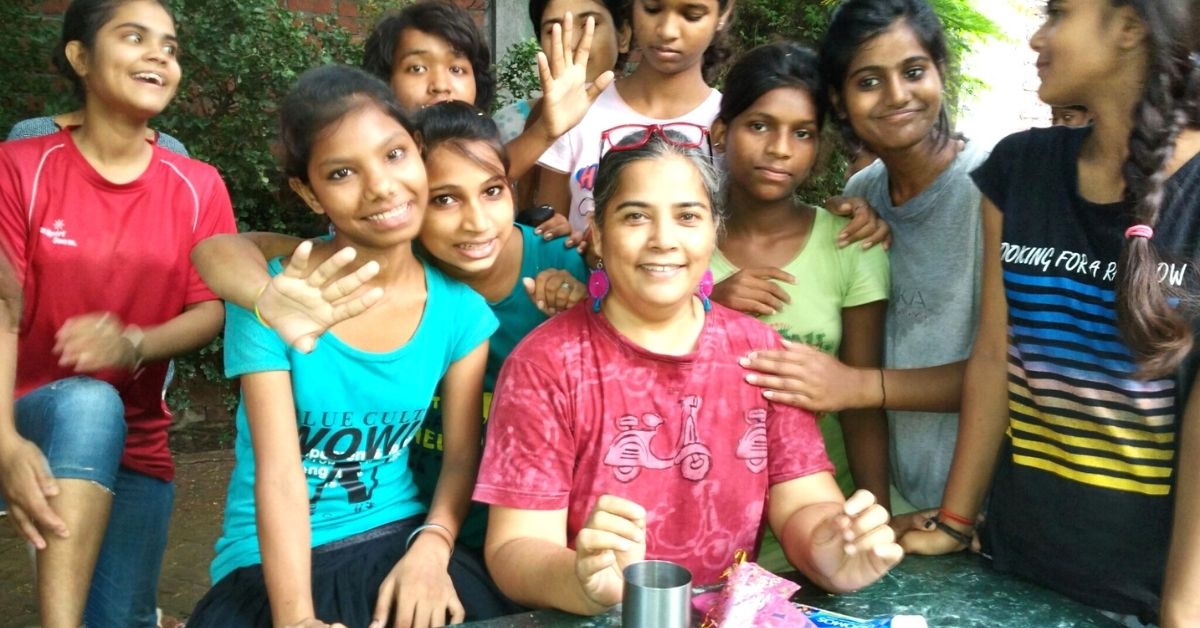
Every morning at NGO Karm Marg, children wake up looking forward to heading to their classes for the day. As they chatter away and ready themselves, some walk to the private school nearby, and others go to the classes located on the premises.
Veena Lal, founder of the NGO, says that each child here has a story to tell. “All these children have either experienced some kind of trauma or pain, or suffer from mental disabilities. Some have behavioural issues like violence and aggression, while others suffer from depression or other psychological issues. A few are malnourished, while some have never been to school. They recieve education here, and are trained and prepared for adult life.”
At Karm Marg, located on the outskirts of Faridabad, around 54 children, with no parents or relatives to look after them, live in harmony with one another. These boys and girls are aged between six and 18 years of age.
Veena says that they were all rescued from public places such as railway stations, bus stations, and others, by the Child Welfare Committee (CWC), and handed over to the NGO to take care of them.
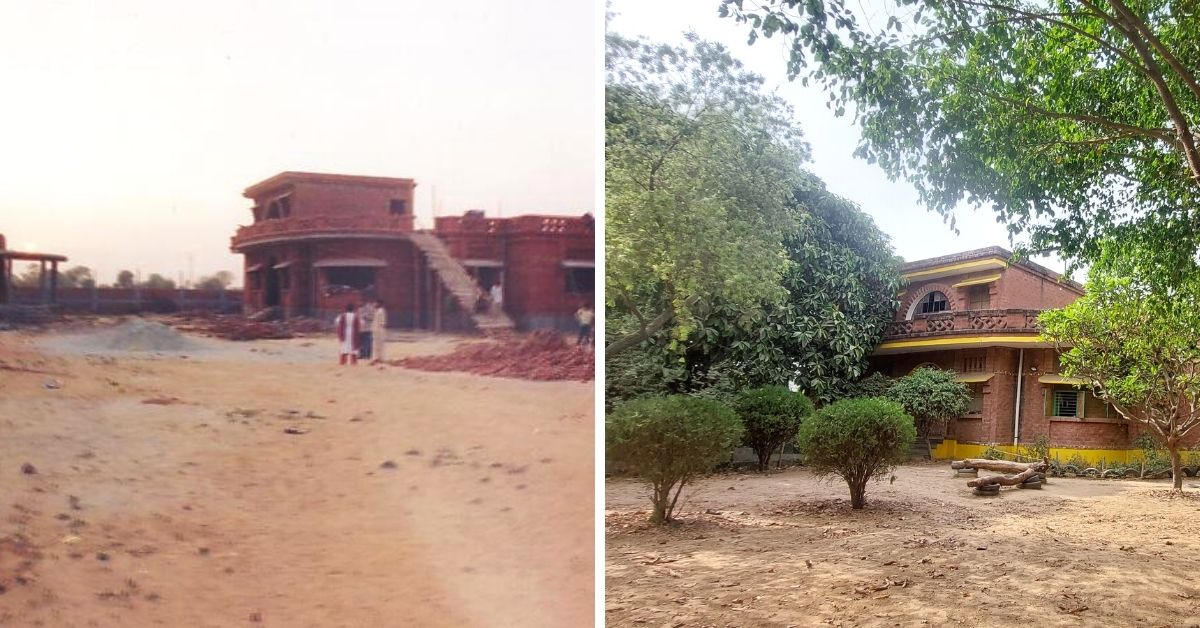
Karm Marg, established in 1997, stands out in multiple ways in functioning, and its approach to treat hundreds of mentally disabled children.
Upbringing with a difference
“I always wanted to work for a social cause and joined an organisation that worked with children soon after graduating. I was there for about eight years, but soon realised that the children required better treatment,” the 55-year-old says.
Veena says she wanted to bring a friendlier and homely approach to taking care of children.
“The NGO I worked with separated girls and boys in the institution. I strongly felt that children could live like other children at home with their parents, rather than living a prison-like life. I wanted to give them the freedom and opportunities they would receive in a family,” she says.
Veena adds, “Living in a co-ed format enables children to become more sensitive and understanding towards another gender. They should be able to understand the importance of equal rights and opportunities. Moreover, asking boys and girls to live separately did not make sense, as in the real world, they have to co-exist together.”
In an attempt to establish a better place, Veena quit her job and set up Karm Marg. “I started with 25 children in a small flat. But the place was congested, and within a year, we moved to a bigger place,” she says.
Given the limited space she worked in, Veena knew she had to provide better living conditions to the children to fulfil her vision. So in 2000, she used her savings to purchase two acres of land on the outskirts of Faridabad. “Luckily, I could use my savings to buy the land,” she says.
“We decided to build an eco-friendly mud house with eight rooms, allowing adequate space for children to live comfortably. The children, some of whom were students of architecture, collectively planned the design,” she says.
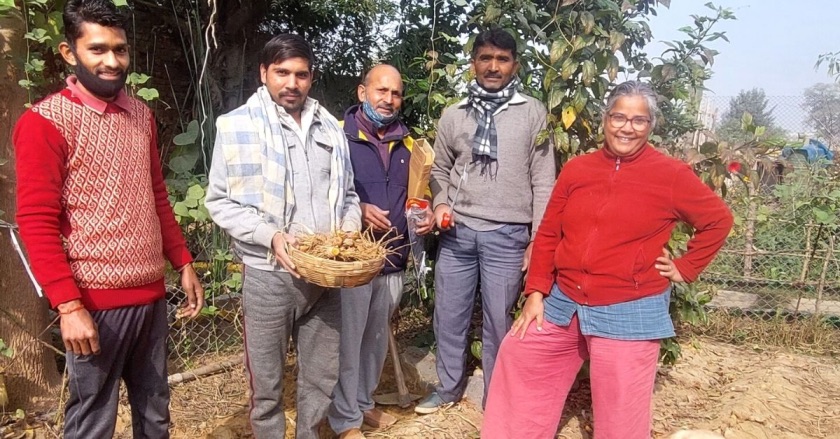
In 2003, the NGO officially moved to their new premises. Today, the house has a kitchen, a classroom, a training room, and a residence for the children. “Children who can manage to access conventional educational methods are admitted to schools. Others who require special attention are provided homeschooling at the NGO with the help of expert faculty. The classes start around 9.30 am. The children finish school in the afternoon, after which we engage them in arts and crafts. They rest in the afternoon, and play sports in the evening. At times, they visit the hospital if needed, come back and study, and then eat dinner,” she adds.
The children stay with the NGO until they reach adulthood, and are later aided in finding jobs, Veena says. Since 1997, over1,500 children have lived with the NGO, and Veena has helped them live a dignified life.
Shabila, one of the residents at the NGO who has since moved out, says, “I learned about Karm Marg in 2006, when I was studying in class 6. One of my teachers told me that the organisation was helping poor children with education. Since my father is a daily wager and could not afford quality education, I approached the NGO.”
Shabila says that she is now independent, thanks to a job with the NGO. She is able to support her family in every aspect, she notes.
Preparing for the world outside
Karm Marg home sits in the midst of a vast number of indigenous trees, and half an acre of organic farm, which she adds is enough to sustain their family.
“Around 2010-11, the media created a lot of awareness about harmful effects of chemicals in vegetables. So I thought of experimenting on the barren land and started planting native trees including fruit varieties such as guava, chikoo, ber (Indian jujube), banana and others,” she says.
Veena adds, “The idea was also to bring children closer to nature.”
Eventually, she started experimenting with organic farming on barren land. By 2015, Veena and the children had mastered agricultural skills and nurtured a flourishing farm. The farm grows all seasonal vegetables, she says.
“We have enough supply for nine months, but we depend on the market during the remaining months. The change of seasons makes it difficult for us to continue farming through the year,” Veena says.
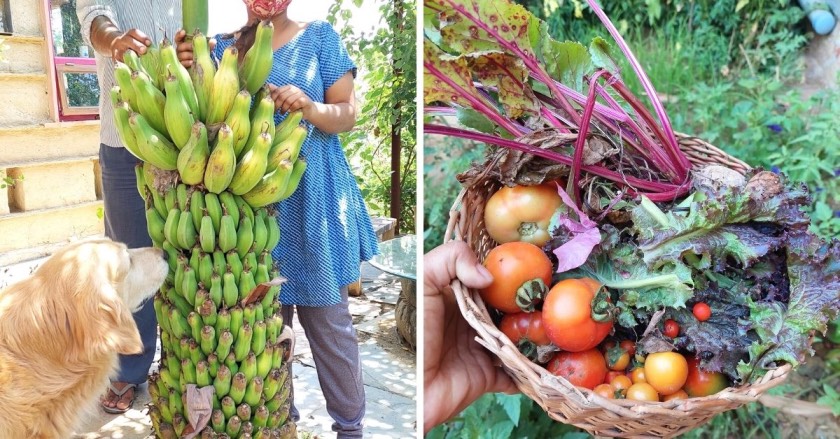
She adds that growing chemical-free food has helped reduce their expenses and hospital trips for children. “Children no longer complain of a vitamin deficiency, a lack of haemoglobin, or an upset stomach, as their immunity has developed. The cases of cold and cough have considerably reduced. Children mostly make trips to the doctor in case of physical injuries these days,” she adds.
The other tangible benefits of the initiative are that the children know how to identify fruit varieties, learn about their health benefits, and gain hands-on knowledge on growing organic food. “Such life skills would not have been possible living in an urban setup. Besides, these children learn to treat kitchen waste and turn it into organic compost, recycle used water through organic methods, and use it for gardening and other domestic purposes,” she says.
Veena says the children also obtain skills in converting waste into usable items. “These craft skills help them start a business and become financially independent once they move out of the campus,” she notes.
However, Veena explains that the children face multiple challenges once they step out of the premises and experience the practicality of life. “For years, they have lived in a safe and protected environment. Occasionally, they face difficulty in dealing with societal pressure and often find themselves in vulnerable situations. These children receive transitional training to cope with the real world,” she says.
Edited by Divya Sethu
If you found our stories insightful, informative, or even just enjoyable, we invite you to consider making a voluntary payment to support the work we do at The Better India. Your contribution helps us continue producing quality content that educates, inspires, and drives positive change.
Choose one of the payment options below for your contribution-
By paying for the stories you value, you directly contribute to sustaining our efforts focused on making a difference in the world. Together, let's ensure that impactful stories continue to be told and shared, enriching lives and communities alike.
Thank you for your support. Here are some frequently asked questions you might find helpful to know why you are contributing?


This story made me
-
97
-
121
-
89
-
167




